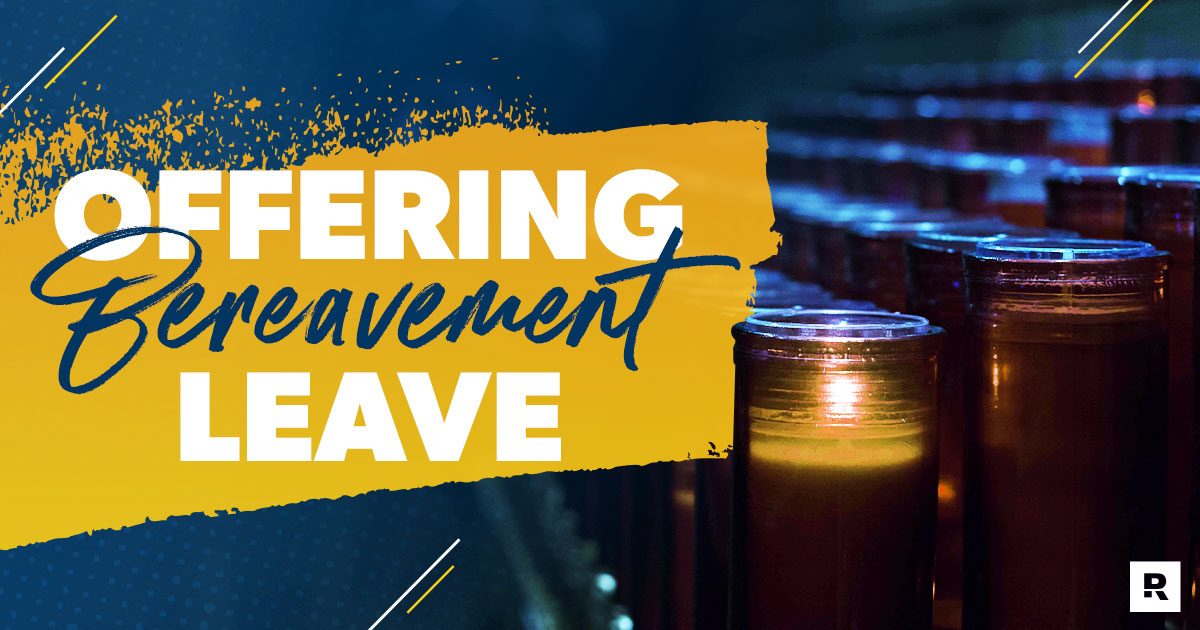Balancing work and family is always a challenge. And it can be especially hard when a family member dies.
If one of your workers suffers a death in the family, the sorrow of loss is on their shoulders. For many it’s a time when work is the last thing they feel like doing. But you also face a delicate question as an employer—how do you balance business duties with compassion?
Your company’s work must carry on even when team members are going through tough times. As with all benefits, the best approach will vary from company to company. Here are a few of the ways some companies are benefiting their grieving employees.
Bereavement Leave as a Paid Benefit
According to a 2014 report on bereavement leave from the Society for Human Resource Management, this benefit is generally separate from other types of paid leave. For example, companies offering this form of leave do so in addition to vacation or sick days.
Several factors determine how much time off employers allow, including:
- The relationship between the employee and the deceased, with more time offered for immediate family deaths. Some companies extend the paid benefit for the deaths of step-relatives and grandparents. Others do so without pay.
- Whether the employee has “responsibility for funeral and estate arrangements,” with some companies extending more time to accommodate such duties.
- The distance to the funeral. Employers may decide to allow more (or less) time off depending on how long a trip the employee is taking.
Over the last two years, several state legislatures have discussed bills requiring private-sector employers to grant bereavement leave to covered employees. So far Oregon is the only state to make such leave a legal requirement.
Time Off for a Pet’s Death?
You might be surprised to learn some companies are granting time off to grieve a beloved pet.
In 2016, ABC News reported pet bereavement is becoming a thing at businesses nationwide. Kimpton Hotels and Trupanion Insurance are just two firms allowing workers time off work to grieve the death of a pet.
Other companies like Ben & Jerry’s and Salesforce said they have no official policy on pet grief but would grant a few days off if an employee requested it.
Balancing Business and Compassion
Encouraging a valued but grieving employee to take time off is a great way to earn that worker’s loyalty.
Depending on the flow of your business or how critical a worker’s duties are to your overall production, you might need to decide about leave on a case-by-case basis. But try to allow some time off for bereavement.
Some companies can afford temporary hires to do the work of employees on bereavement leave, but many obviously can’t. Most daily duties can be covered in a pinch by coworkers, and it gives teams a good feeling to know they’re pulling together behind a hurting teammate. Either way, employees who know how much you value them stick around and work hard.


